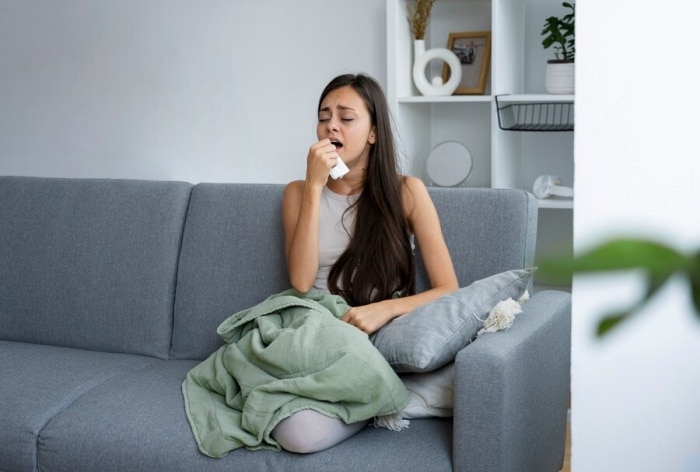Air pollution inside our homes can be as dangerous as when we breathe toxic air outside. It can severely damage our lungs and here is how we may protect it.
Air pollution in Delhi is rising every day. While this is not a surprise for the people living in the capital and NCR area, it sure takes a severe toll on our health every time, be it physical or mental. It is not just the outisde air that is harmful, what we breathe inside our warm households can equally pose a damage risk for our lungs and respiratory system.m We don’t really realise this, but indoor air pollution is real.
The toxic environmental toxins can wreak havoc inside our bodies too and exaggerate comorbidities. According to a report by the World Health Organisation (WHO), ” Household air pollution was responsible for an estimated 3.2 million deaths per year in 2020, including over 237,000 deaths of children under the age of 5. The combined effects of ambient air pollution and household air pollution are associated with 6.7 million premature deaths annually.”
Indoor air can be polluted with various contaminants, including dust, mould, pollen, chemicals, and pet dander.
TIPS TO FIGHT INDOOR AIR POLLUTION
- Identify and Remove Pollution Sources: The first step towards improving indoor air quality is to identify and eliminate the sources of pollution. Common indoor pollutants include cooking fumes, cleaning chemicals, volatile organic compounds (VOCs) from paints and furniture, and tobacco smoke. Avoid using harsh chemicals, opt for low-VOC products, and eliminate smoking indoors.
- Regular Cleaning and Maintenance: Regular cleaning and maintenance help reduce pollutant buildup and improve indoor air quality. Vacuum carpets and rugs frequently to remove dust and allergens. Clean and disinfect surfaces with appropriate cleaning solutions. Change air filters regularly, including furnace filters, air conditioner filters, and range hood filters.
- Control Humidity: High humidity levels can promote mould and mildew growth, which can trigger allergies and respiratory problems. Maintain humidity levels between 30% and 50% using a dehumidifier if necessary. Fix leaky pipes promptly to prevent moisture damage and mould growth.
- Consider an Air Purifier: An air purifier can effectively remove airborne particles and pollutants, providing an extra layer of protection against indoor air pollution. Choose an air purifier which is highly efficient at capturing dust, mould spores, and other allergens.
- Deep Breathing Exercises: Apart from taking care of home hygiene, it is important to enhance our lungs and respiratory system.
–>
